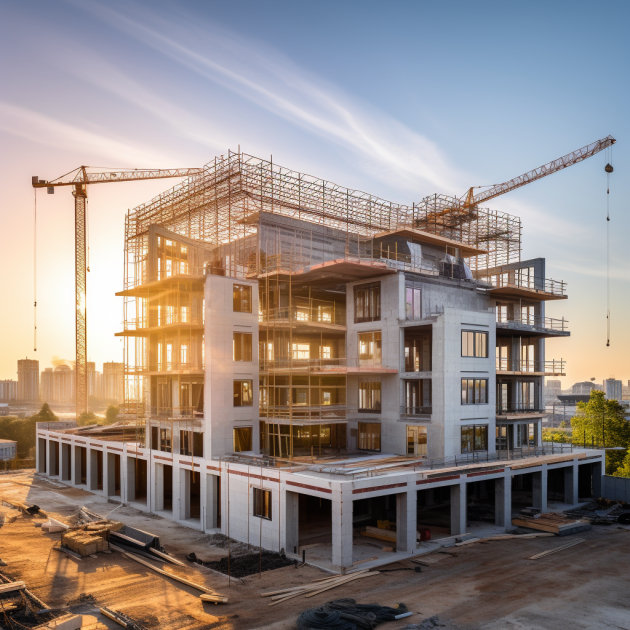Building Construction Costs 101: How to Budget for Your New Building

Planning to construct a new building is an exciting endeavour, but it requires careful budgeting to ensure its success. Understanding building construction costs is crucial for effective budgeting and project planning. This article serves as a comprehensive guide to help you navigate the process of budgeting for your new building, providing valuable insights and tips to ensure your project stays on track.
1. Determine the Project Scope
The first step in budgeting for a new building is to determine the project scope. Clearly define your requirements and objectives, including the building size, layout, materials, finishes, and any specialized features. Understanding the project scope helps in accurately estimating costs and avoiding unexpected expenses during construction.
2. Conduct Cost Research
Conducting thorough cost research is essential for building construction budgeting. Research local construction costs, materials, labour rates, and market trends. Consult industry publications, construction professionals, and online resources to gather accurate and up-to-date information. This research will provide a solid foundation for estimating the various components of your building construction budget.
3. Account for Site Preparation and Infrastructure Costs
When budgeting for your new building, don’t forget to account for site preparation and infrastructure costs. These include activities such as land clearing, excavation, utility connections, and site improvements. Site-specific factors like soil conditions, topography, and accessibility can significantly impact these costs. It’s crucial to factor them into your budget to avoid surprises later on.
4. Consider Design and Architectural Expenses
Design and architectural expenses are an important aspect of building construction costs. Engaging professional architects and designers to develop detailed plans and specifications will ensure a well-executed project. These expenses typically include design fees, architectural drawings, structural engineering, and interior design. Allocating a portion of your budget to these aspects will help create a visually appealing and functional building.
5. Estimate Material and Labor Costs
Estimating material and labour costs is a critical step in building construction budgeting. Work closely with contractors and suppliers to obtain accurate pricing for construction materials, finishes, and fixtures. Factor in labour costs, including skilled tradespeople, subcontractors, and project management. Considering the quality of materials and labour is essential to strike a balance between cost and quality.
6. Contingency Planning
Including a contingency budget is essential to handle unforeseen circumstances and potential changes during the construction process. Contingency funds act as a safety net, allowing for adjustments and unexpected expenses without compromising the project’s overall budget. It is recommended to allocate a percentage of the total budget as a contingency, typically ranging from 5% to 10%.
7. Regular Cost Tracking and Monitoring
To ensure your building construction budget stays on track, implement regular cost tracking and monitoring. Keep detailed records of expenses, compare actual costs to estimated costs, and address any deviations promptly. This proactive approach enables you to make informed decisions and take corrective measures if necessary, avoiding budget overruns.
Budgeting for a new building is a critical aspect of construction project planning. By following these key steps, including determining the project scope, conducting thorough cost research, accounting for site preparation and infrastructure costs, considering design and architectural expenses, estimating material and labour costs, planning for contingencies, and implementing regular cost tracking, you can create an accurate and comprehensive budget for your building construction project. Effective budgeting sets the foundation for a successful construction journey, ensuring that your new building is completed within budget and meets your expectations.
